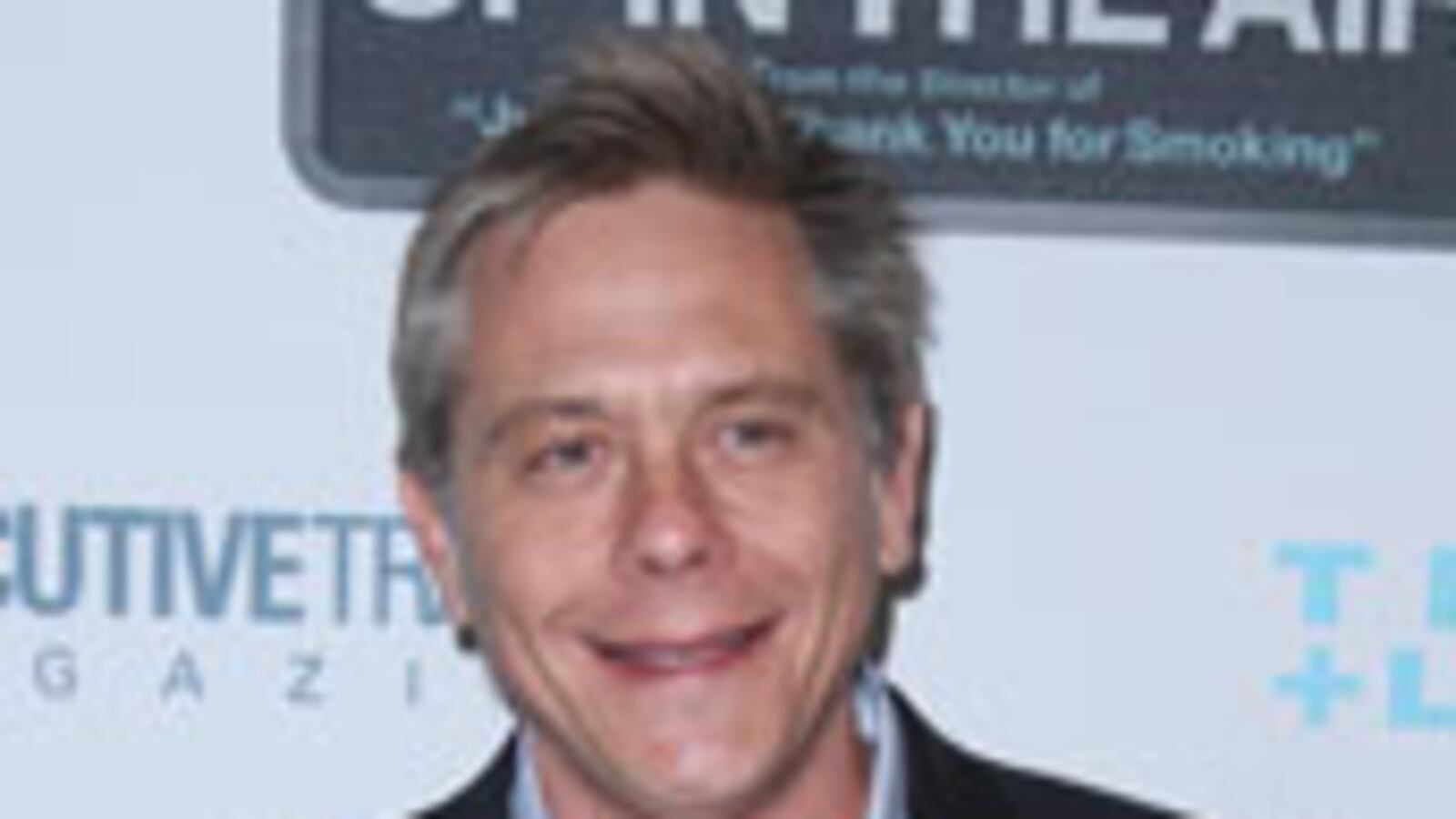
Last summer, I did something I hadn’t thought possible: I sat down in a private Beverly Hills screening room and viewed, with pleasure, terrifying pleasure, a just-short-of-finished version of a movie based on a novel that I’d published eight years earlier and watched disappear just two months afterward.
Up in the Air, I’d titled the book, both for its setting (airplanes, airports, airport hotels) and for the plight of its hero, Ryan Bingham, a rootless, restless management consultant who specializes in firing corporate workers whose bosses aren’t able to do the deed themselves, and who soothes his bad conscience by hoarding frequent-flier miles and their many perks. The story, which I started writing at the peak of the dot-com mania, was conceived, in part, as a morality tale about the spiritual distortions forced upon people by techno-capitalism. It was also a satirical treatment of the drive to pile up useless wealth. But mostly it was a character study of someone (or a class of someones) who I felt was invisible in literature despite being all around me in real life: the pretzel-eating, mini-bar-raiding nomad, his existence pared down to a single carry-on, but his soul the same size as everyone else’s.
• The Daily Beast’s Complete Oscar CoverageThe book received some good reviews and sold at a brisk clip—at first. But then, on the morning I was set to fly to New York for its publication party, it stopped doing well, as did many other things, on September 11, 2001. It’s a date that only a narcissistic writer who’d just come out with a novel could remember for anything other than its legacy of toppled towers, vaporized humanity, and the outbreak of a long, long war.
Though Up in the Air stopped selling instantly (its eye-catching cover didn’t help: a cartoon of flying businesspeople, one of them on fire and hurtling earthward), a movie studio had hired me three weeks earlier to turn the book into a screenplay. The studio honored the contract despite the cataclysm that, it was universally agreed, would prevent such a film from ever being made. I turned in the script, took my check, and went away. The studio dropped its option on the novel, and Ryan Bingham’s fate was sealed, it seemed—he’d be entombed in my mind forever after, in the same secret spot where he was born.
A couple of years passed. And then, in a reversal (a reverse reversal, actually) that wouldn’t have seemed remotely plausible if I’d put it in a novel, what had come down began to go back up. The ascent commenced with a brief email from Jason Reitman, a thirtyish film director who, at the time he wrote me, was not well known, but would soon become famous for his first two movies: Thank You for Smoking and Juno. He was writing a script from my novel, he informed me, and would get back in touch when he was finished. Right. Heard that one. Though another one of my novels, Thumbsucker, had by then become an indie, I knew from experience—my own and others’—that when Hollywood promises to get back to you, it’s best not to wait by the phone. You’ll starve to death.
Then, two years later, Reitman’s script arrived. I read it in one sitting. And though I texted him to say I liked it—which I really did, in large part for the liberties it took to open up Ryan’s story for the screen and to allow Reitman to inject his own concerns into a tale that was amply stuffed with mine—I still felt the material was cursed and suspected that the project would end there. I was wrong. Some months later, just over a year ago, I rolled over in bed, naked, and switched on my BlackBerry to punish a girlfriend who’d switched on hers just moments after sex (the first time I’d ever suffered this modern impertinence but far from the last). My newest message beat hers, as it turned out. According to an article in Variety forwarded to me by a friend, George Clooney was engaged in serious talks to breathe big-screen life into Ryan Bingham’s cadaver.
Skeptical, I called Reitman on his cellphone. He answered from a guest room in Clooney’s house (or his “Lake Como villa,” as the tabloids call it). Once we’d hung up, I muttered a prayer of gratitude. I still don’t know just which god I was addressing (the risen soul of Louis B. Mayer?) but it felt important to thank someone.
Sitting down for the screening in Reitman’s house last summer, I prayed again: “Please let this not be crap.” Ten seconds into the dazzling credit sequence (a soulful jazz version of “This Land is Your Land” sung over a moving jigsaw puzzle of pan-continental aerial landscape shots), I stopped my fretting, leaned back with a cold drink, and settled in for the strangest, greatest spectacle that a hard-luck novelist could ask for: the translation of his most forgotten main character into a 10-foot tall cinematic everyman with a face resembling George Clooney’s, but a name, a vocation, an obsession, and an outlook that I distinctly remembered having made up.
After 9/11, Up in the Air stopped selling instantly—its eye-catching cover didn’t help: a cartoon of flying businesspeople, one of them on fire and hurtling earthward.
Not that the movie felt familiar. Reitman’s own story inventions were everywhere, as was his clean, astringent sense of comedy and his rich, sweet, melancholic temperament. Characters who hadn’t been in the book, or who’d only half been in the book, reacted to situations I’d never imagined against backdrops I hadn’t dreamt of. I was reminded of A Christmas Carol, when Scrooge is allowed to see his own life, altered. I felt like the spirit of a departed bridegroom hovering over the scene of his own wedding. I felt divided, that is—but good-divided. Euphoric-divided, even, as time went. “To know me, you have to fly with me,” said Clooney in voiceover, quoting my book between lines composed by Reitman, who I stole a glance at a few seats over: a bearded young Jewish man who could raise the dead!
I was giddy, insanely giddy, it was true, but I had a perfect right to be just then. As my Depression-tempered grandfather used to say whenever he had the chance, “Things are tough all over, Walt.” And nowadays things are tough indeed for novelists, especially for we who won’t do vampires and don’t embed mystical codes in our plots. Yet somehow, like Ryan Bingham, I’d come through. There I was up on screen for a long few seconds, in fact: an author seated just inches from one of his characters—one that he’d both written and written off. Reitman had stuck me there to tickle my vanity, and Clooney himself had made sure I’d stay put, even after the movie was edited. “You sit close enough to me, you won’t be cut,” he’d said. And the man knows his business. Watch the movie: You’ll see.
After the screening, I found myself stuck, unable to stand back up. I was trapped in an eerie artistic fifth dimension, feeling misty-eyed and heavy-limbed. The movie’s ending was partially responsible, but there was something deeper at work. For years and years, Ryan Bingham had been lost, but now he’d been found (looking better than before), exhumed from his little crypt inside my brain. The fellow no longer belonged to me. He belonged to Reitman, to Clooney, to the audience.
Goodbye, sir. Go. Travel safely. You’re on your own now.
Walter Kirn is a regular reviewer for The New York Times Book Review, and his work appears in The Atlantic, The New York Times Magazine, Vogue, Time, New York, GQ and Esquire. He is the author of six previous works of fiction: My Hard Bargain: Stories, She Needed Me, Thumbsucker, Up in the Air, Mission to America and The Unbinding. Kirn is a graduate of Princeton University and attended Oxford on a scholarship from the Keasby Foundation. He lives in Livingston, Montana.





